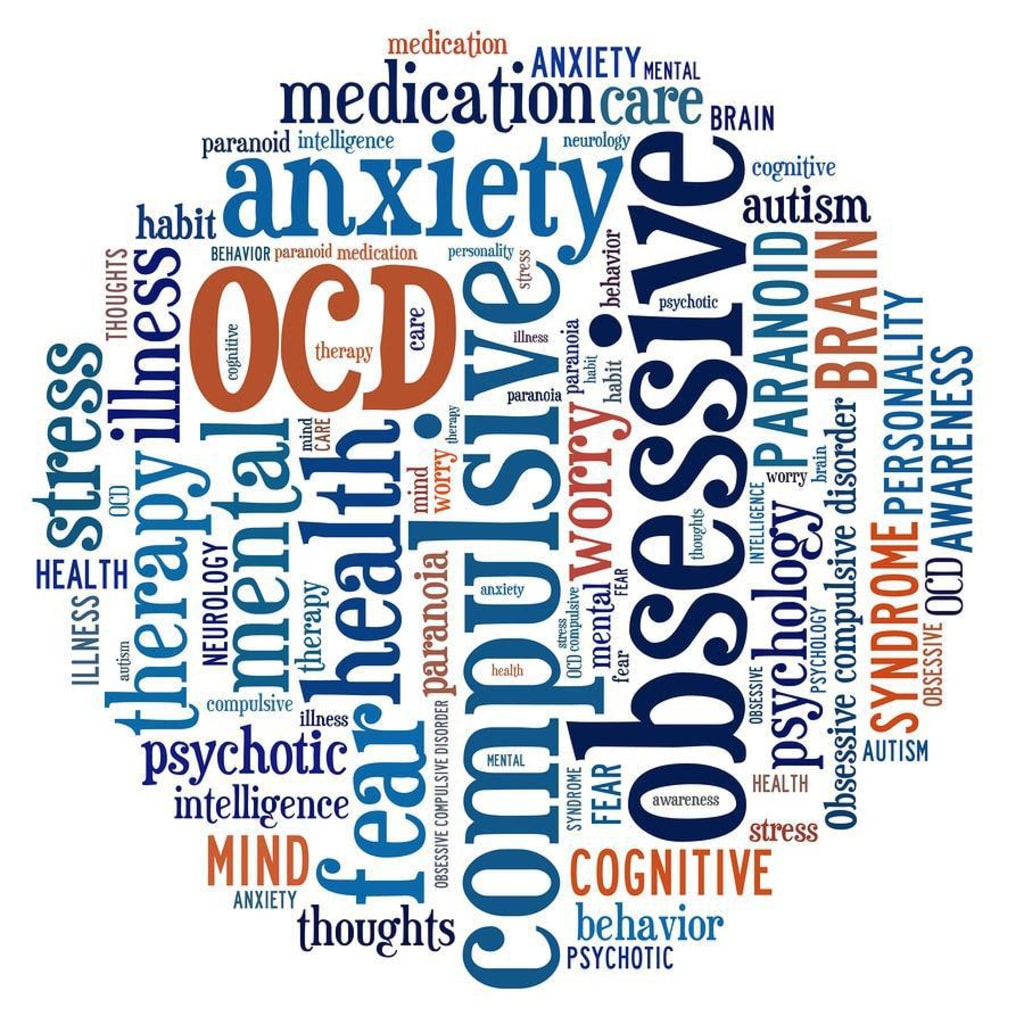The reality of perfectionism with OCD
by Stacey Frewin

Most people believe you should always try your best.
Perfectionism in OCD can be a major source of inner conflict and distress. For people with OCD the need for perfection goes beyond just wanting something to be right, but the need for it to be perfect has consequences attached to it. In my case I obsess over every tiny detail and flaw, and that causes me intense distress. If it is not perfect, something bad will happen. There will be a consequence disproportionate to the problem. This idea invades my thoughts and attacks thought after thought and I get stuck in a loop.
Realistically, I understand the need for perfection is a product of intrusive thoughts and the chances of something bad happening is small. Yet it feels anything but. When I look deeper, I wonder why I need perfection? Is it perfection in work or every aspect of my life? Here's the problem with perfection: it's not attainable. No-one and nothing is perfect, so I strive for something impossible.
I look at my family, my husband and son. Do I demand perfection of them? Absolutely not. When I was young, I always felt pressure to be perfect, to do my best in school. I always failed to meet my self imposed standards. Now with my son, although I want perfection from myself, I do not want this for him. In order to grow you need to fail, to learn and move forwards. Setting unrealistic expectations is a massive OCD trigger for me. I want to be the perfect mother and perfect wife. If I'm not, my son will not love me and my husband will leave me. Again the thoughts attack relentlessly.
Already I am setting myself up for failure. How can you achieve something that doesn't exist? Sure, perfection exists in perfect scores and academia, but in life? Each person's definition of perfection is different, and so is tailored to each person's expectation. So to someone who wants to achieve perfection, in whatever it may be is fighting against their own ideals. It's a never ending exhausting battle.
With OCD, thoughts trigger actions. In terms of my contamination fears, if my hands are not pristinely clean, I become contaminated. Due to that fear I wash my hands a certain number of times. In my case ten washes per cycle. Yet if the soap is not lathered or rinsed well enough, is it clean? Can I deal with the uncertainty? What thought will not washing my hands ten times trigger? The cycle then repeats itself.
Recently, I was asked to do a mindfulness challenge with a series of questions. A lot of these related to my mental health struggles, and the challenge really made me think about what I wanted to change. Moreso what I could change, that was in my control and what was not. I thought broadly about my OCD and depression symptoms, intrusive thoughts, checking, contamination fears and perfectionism. I realised nothing I do will be good enough in my eyes. So I made the decision to focus on making small changes. The first change is how I talk to myself. Self talk can make or break us, and when we have negative intrusive thoughts, our mood, energy levels and motivation are severely impacted. When I was asked what the most important thing I've learned in life was, at that moment I knew my answer.
Trying your best is more important than perfection.
I forget this all the time; the fear of things not being perfect clouds my thoughts and judgement, but I am trying to remember this because it's important. So what can you do to help make things easier? There is no tried and tested answer; everyone is different. Therapists will recommend cognitive behavioural therapy. For me personally this what I am trying:
Write a list of manageable expectations.
Depending on your symptoms each day, what you can manage varies. Some days I am barely able to leave the house. I have frequent panic attacks and anxiety rules my day. My routines of washing and checking take over, and they will occupy large amounts of my day. On a day like this, perfection really is a problem for me because I have trouble functioning, let alone doing things perfectly in the correct way. So I make a list of what I would consider reasonable - not perfection, but manageable. This allows me to focus on what I can achieve instead of what I can't.
Prioritise by importance
When I am feeling overwhelmed, I ask myself what is most important. If that day it is picking my son up from school, then that is the goal. By focusing on doing what is most important, I worry less about perfection in all things I need to do and break them down into smaller, more manageable tasks.
Have someone to talk to. Make a crisis plan.
This may sound a bit silly to some, but when I am having a bad day, I have a tendency to avoid people both online and in person. I feel it is important to have someone who will recognise the signs of when you are becoming overwhelmed. With whatever symptoms are troubling you. Reaching out and having the courage to say “I need help,” or “I'm not okay.” can feel like a big step. Having a crisis plan in place with a friend or family member may be useful .Whether it be daily check-ins, short phone or video calls – whatever works for you- just to know that if you want to talk about it, you can. I have a friend who checks in each day and I know that if I need help or start avoiding her, she will notice. That makes all the difference to me. I feel less isolated on difficult days because of it.
OCD in any form is a lonely and isolating illness. Sometimes you may barely understand what it is you are feeling or why you are feeling it, let alone the intrusive thoughts that cause it and the compulsions it drives you to complete. Just know you are not alone.
For more information on my story, head to my blog OCD and me at www.lifewithocdandme.com
About the Creator
Stacey Frewin
Hi, my name is Stacey and I have a blog called OCD and me.Visit it on www.lifewithocdandme.com. I enjoy creative writing, cake decorating and family time.






Comments
There are no comments for this story
Be the first to respond and start the conversation.